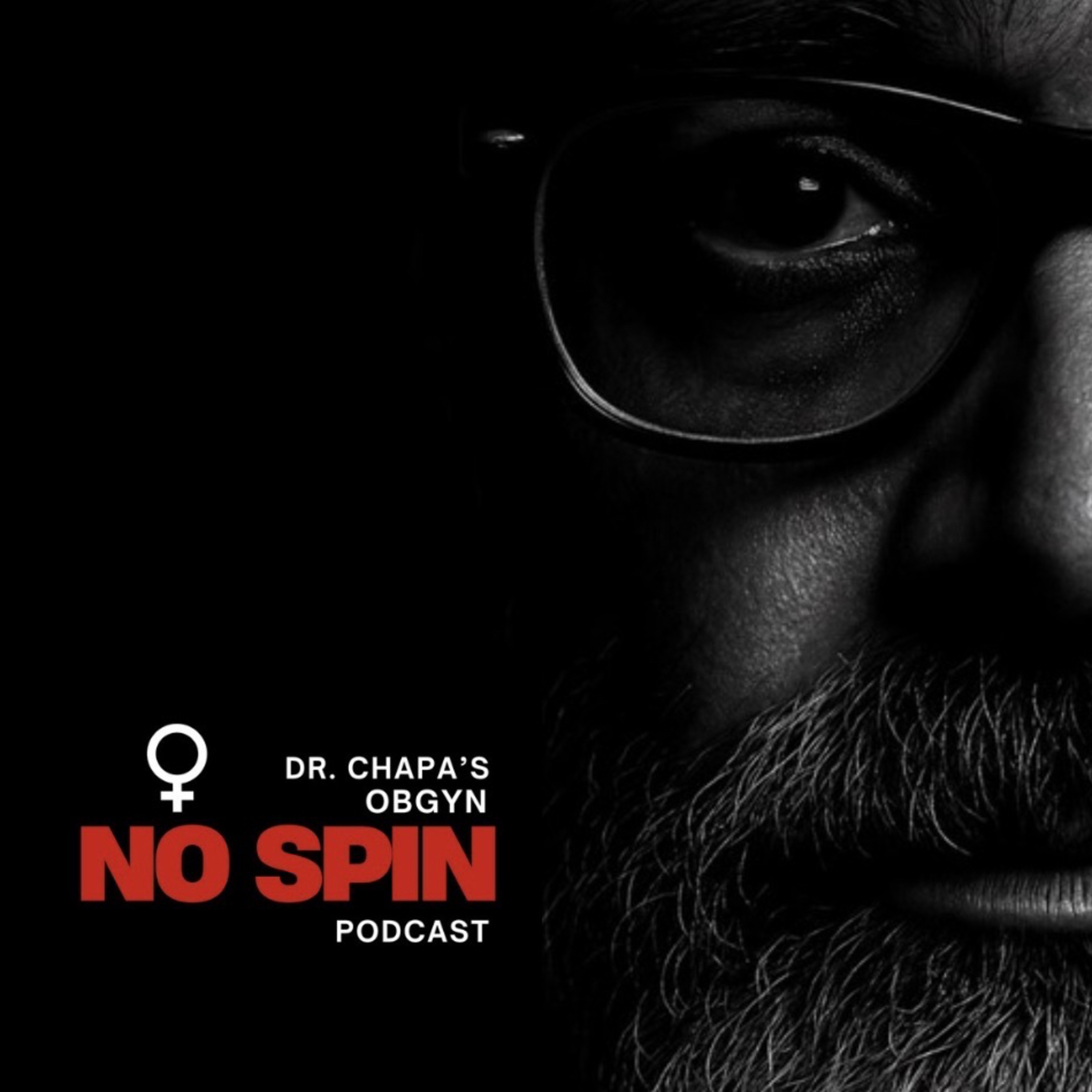

Dr. Chapa’s OBGYN Clinical Pearls
Dr. Chapa’s Clinical Pearls
Relevant, evidence based, and practical information for medical students, residents, and practicing healthcare providers regarding all things women’s healthcare! This podcast is intended to be clinically relevant, engaging, and FUN, because medical education should NOT be boring! Welcome...to Clinical Pearls.
Episodes
Mentioned books

Nov 5, 2024 • 34min
Does OB Superficial Thrombophlebitis (SVT) Need LMWH? YES, and NO.
The discussion dives into the complexities of pregnancy-associated superficial thrombophlebitis and its need for anticoagulation. Differing guidelines reveal a debate on whether traditional beliefs are still valid. Key insights from a recent Danish study highlight that superficial venous disease can have serious complications. The importance of accurate diagnosis through ultrasound and tailored management strategies for treatment are emphasized. Ultimately, the conversation urges a reevaluation of how superficial vein thrombosis is approached in pregnant patients.

Oct 31, 2024 • 29min
24-28 Hour Post-CS Discharge: New Data
Discover why recent guidelines suggest women recovering from scheduled C-sections may be safe to go home within 24 hours. Learn about the challenges faced during the first day post-surgery, including pain management and new parenthood adjustments. A forthcoming meta-analysis supports these recommendations, showcasing the benefits of tailored, early discharge protocols. Plus, hear the importance of follow-up care and patient education to ensure smooth recoveries, backed by evolving research in maternal health.

Oct 28, 2024 • 42min
Q&A: ABRYSVO® Every Pregnancy? Clitoxin™?
Welcome Back to another episode of "You ask, We Answer"! As Abrysvo (RSV vaccine) now has some time on the market, some women may find themselves with a subsequent pregnancy after first receiving the injection in the prior pregnancy. Is another RSV vaccine recommended with each pregnancy, like TDap? The answer to that question depends on where you live. We will discuss in this episode. PLUS, have you heard of CLITOXIN? Its a little botulinum toxin injected into the clitoris for "enhanced sexual response". Is that evidence-based? Is there data for that?! Listen in for details.

Oct 26, 2024 • 51min
Can Placental Volume on Sono Predict IUFD?
Dive into the intriguing world of placental volume assessment and its potential link to fetal health. Discover how measuring the placenta's size might predict risks like stillbirth and understand the controversies surrounding its use as a preventive measure. Hear about the delicate balance between data interpretation and the realities of fetal surveillance. With insights from top medical guidelines, the discussion emphasizes the importance of ongoing research before making this practice routine. Don't miss this enlightening exploration!

Oct 24, 2024 • 28min
New AHA/ASA 2024 Guidance: WH Focus
A woman’s harrowing minor stroke story opens the discussion on the urgency of recognizing stroke symptoms at any age. New guidelines from the AHA stress the link between women’s health issues, like PCOS and endometriosis, and elevated stroke risks. The conversation highlights the critical need for education in preventative healthcare, especially regarding pregnancy's unique stroke risks. Emphasizing awareness and early action, the podcast urges listeners to stay informed and proactive about their health.

Oct 23, 2024 • 33min
The Enigma of Endo and Early Birth
Explore the puzzling relationship between endometriosis and preterm birth, where conflicting studies create more questions than answers. Recent research from October 2024 challenges previous findings, stirring debate over this complex link. Delve into early 2022's contradictory evidence that adds to the confusion. The podcast unpacks the ongoing challenges in observational research, shedding light on the implications for accurate diagnosis and understanding pregnancy complications.

6 snips
Oct 20, 2024 • 47min
Insulin Initiation Made Easy
Discover the challenges of insulin management for pregnant women with diabetes and the critical balance needed to avoid hypoglycemia. Learn about the innovative approaches to insulin initiation focusing on different regimens, including NPH and rapid-acting options. The discussion emphasizes the importance of humility and kindness in healthcare relationships. Explore historical insights on gestational diabetes and the necessity of patient education for effective treatment. Gain a deeper understanding of combining therapies for comprehensive diabetes management.

Oct 19, 2024 • 24min
The OCP Makes You Gay?
The podcast dives into the controversial topic of hormonal birth control and its supposed link to sexual orientation. It debunks the myth that birth control pills can alter sexual preference, emphasizing that sexual orientation is shaped by a mix of biological, environmental, and social factors. Listeners learn about the importance of relying on credible research over social media speculation. The discussion also highlights the complexity surrounding sexual desire and partner preferences, making for a thought-provoking exploration.

Oct 16, 2024 • 37min
Miso for EPF With Prior CSs?
Navigating the complex world of early pregnancy failure (EPF) reveals the challenges faced by women with prior cesarean sections. The podcast dives into the use of misoprostol, discussing ACOG guidelines and potential risks such as uterine rupture. Safety concerns about miso’s effectiveness in early pregnancy loss are addressed, along with evidence supporting its use despite previous uterine surgeries. The conversation emphasizes informed decision-making and dispels common misconceptions surrounding this critical topic in reproductive health.

Oct 15, 2024 • 34min
RPL with APS: When to Start RX
Explore the complexities of treating Antiphospholipid Antibody Syndrome in women with recurrent pregnancy loss. The discussion highlights differing guidelines from prominent medical organizations, revealing controversies over the best timing for starting treatment. Should intervention happen before conception, right after a positive test, or only after confirming a viable pregnancy? Recent studies suggest potential benefits for early treatment, but experts remain divided on the optimal approach. Current guidance aims to aid in crafting an evidence-based care plan.


